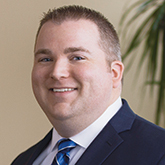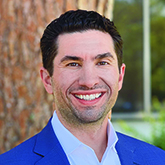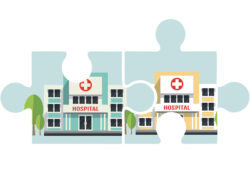LA Downtown Medical Center reinvents itself as a force for community change
A community safety-net hospital, once embroiled in scandal and legal troubles, has become a success story of impactful community change. With new owners and a new name, LA Downtown Medical Center (LADMC), has shown that investing in people and operating with a mission to help the greater good can result in an impressive transformation.

Overcoming a complicated past
The former City of Angels Medical Center, renamed Silver Lake Medical Center in 2009 following the federal prosecution of its former owners, was purchased during bankruptcy proceedings in early 2019 by Bill Nelson and Vicki Palana Rollins, co-owners of several healthcare facilities in Southern California.
Renaming the hospital LADMC, Nelson and Rollins focused on transforming the facility’s buildings, operations, staff morale and reputation—even as it faced the challenges brought on by the coronavirus pandemic. As a result of these efforts, it has received a 5-star rating from the Centers for Medicare & Medicaid Services (CMS) three years in a row.
Investing in the community
LADMC has gone above and beyond for its community and staff, says Nick Burgess, VP of Strategic Accounts and Vendor Management of Community Hospital Corporation (CHC). CHC, a not-for-profit organization that improves community hospitals, works with LADMC on a number of initiatives. As a top priority, LADMC has made a commitment to supporting the growth of the nursing field and addressing homelessness and mental health in its urban community.

To address the shortage of nursing staff in its community, LADMC began offering scholarships to nursing students. “Vicki is a nurse by background, so the mission of creating more opportunities for healthcare workers from the community is near and dear to our heart,” says Mark Valentino, CEO of LADMC.
In 2021, LADMC raised and contributed $300,000 in nursing scholarships and grants for more than 70 students and aspiring healthcare workers seeking additional licenses and degrees.
Focusing on behavioral health & housing
While LADMC supports all nursing disciplines, it focuses specifically on behavioral health nurses. Of its 262 patient beds, 147 are for acute psychiatric patients. “As a safety-net hospital in urban Los Angeles specializing in psychiatric care, we see the carnage firsthand from the pandemic and from homelessness in general, in addition to our overall general acute care mission,” Valentino says.
In 2021, the hospital contributed $100,000 toward placing homeless and/or behavioral health patients in short-term housing. In the last four months of the year alone, it placed nearly 100 patients into short-term housing when they were discharged from the hospital.
“Many patients with behavioral health issues either live on the streets or will return somewhere they are no longer welcome given their behavioral issues,” Valentino explains. When these stabilized patients are discharged, if they return to the streets or into another unstable environment, they often end up back in the hospital. “It is a vicious circle,” he says, “so LADMC having the ability to provide housing can help these individuals continue their process of recovery. Some of the patients that come through our doors have nowhere else to go. We feel an obligation to do whatever we can to help, even after the day of discharge.”
LADMC also contributed more than $200,000 through community health fairs.
Besides providing free healthcare exams to community members attending these fairs, it gave away groceries and toys.
To continue the hospital’s work on the initiatives of combating mental health problems in its community and bolstering and supporting healthcare workers, the organization created the LADMC Foundation to raise funds.
“LADMC has taken it upon itself to really try to make a difference in an area where it could be easier just to do nothing,” says Burgess. “Here’s a small community facility that’s taking a stand and trying to positively impact the mental health crisis.”
Share Email Nursing, Performance Improvement, Q4 22




